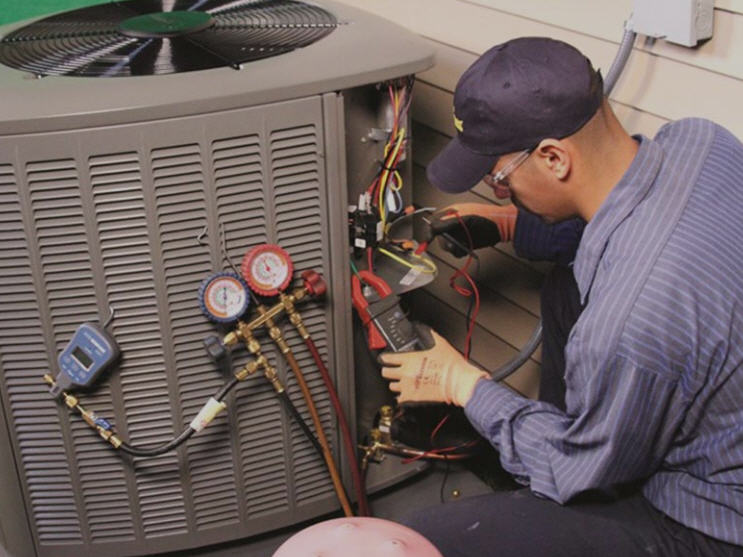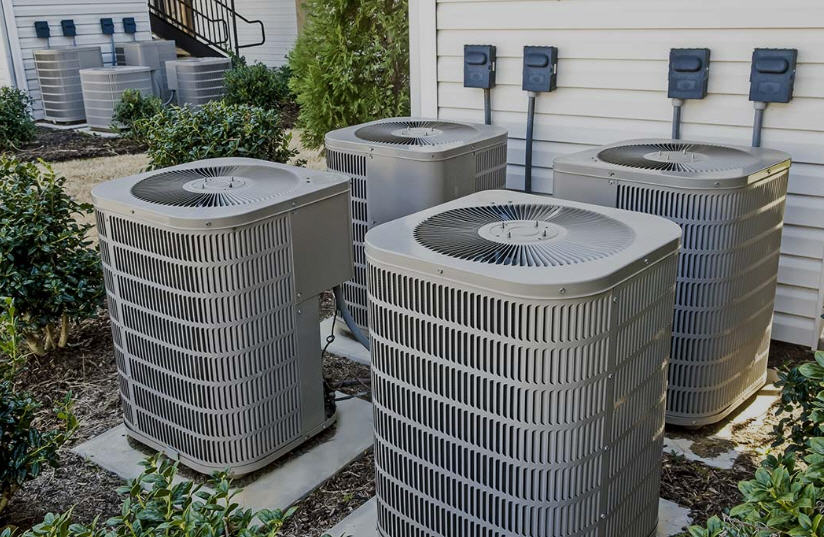A chatbot for heating and cooling services (e.g., HVAC companies, air conditioning repair, or heating system maintenance) can address several business problems, improve customer satisfaction, and streamline operations. Here are the key problems it can solve:
1. 24/7 Customer Support – Basic / Intermediate
- Problem: Customers often have questions outside of business hours, such as service availability, pricing, or emergency repairs.
- Solution: A chatbot can provide instant answers to common queries, ensuring customers get the information they need anytime.
2. Appointment Scheduling – Basic / Intermediate
- Problem: Coordinating service appointments between customers and technicians can be inefficient.
- Solution: A chatbot can integrate with calendars to schedule appointments, send reminders, and reschedule if needed.
3. Emergency Service Requests – Basic / Intermediate
- Problem: Customers may need immediate assistance during heating or cooling system failures.
- Solution: A chatbot can log emergency requests, provide troubleshooting tips, and notify technicians in real time.
4. Service and Pricing Information – Basic / Intermediate
- Problem: Customers frequently ask about service packages, pricing, or maintenance plans.
- Solution: A chatbot can provide instant, accurate answers to common questions, freeing up staff time.
5. Lead Generation and Qualification – Basic / Intermediate
- Problem: HVAC companies may struggle to capture and qualify leads for new installations or maintenance contracts.
- Solution: A chatbot can engage website visitors, collect their information, and pre-qualify leads based on their needs.
6. Feedback and Surveys – Basic / Intermediate
- Problem: Collecting feedback from customers can be inconsistent and time-consuming.
- Solution: A chatbot can automate feedback collection and surveys, providing valuable insights for improvement.
7. Multilingual Support – Basic / Intermediate
- Problem: HVAC companies serving diverse populations may face language barriers.
- Solution: A chatbot can offer multilingual support, enabling communication in the customer’s preferred language.
8. Reducing Administrative Overhead – Basic / Intermediate
- Problem: Administrative tasks (e.g., answering FAQs, scheduling, reminders) consume significant time.
- Solution: A chatbot can automate routine tasks, reducing the workload on staff.
9. Improving Customer Retention – Basic / Intermediate
- Problem: Customers may feel neglected if communication is slow or inconsistent.
- Solution: A chatbot can maintain consistent engagement, provide timely updates, and collect feedback.
10. Competitive Advantage – Basic / Intermediate
- Problem: HVAC companies face increasing competition and need to differentiate themselves.
- Solution: A chatbot can position the company as tech-savvy and customer-focused, attracting more clients.
11. Data Analytics and Insights – Basic / Intermediate
- Problem: Companies may lack actionable insights into customer behavior and preferences.
- Solution: A chatbot can collect and analyze data on customer interactions, helping improve services and make data-driven decisions.
12. Onboarding New Customers – Basic / Intermediate
- Problem: The onboarding process for new customers can be lengthy and confusing.
- Solution: A chatbot can guide customers through the onboarding process, ensuring all necessary information is collected.
13. Maintenance Reminders – Basic / Intermediate
- Problem: Customers may forget to schedule regular maintenance for their heating or cooling systems.
- Solution: A chatbot can send automated reminders for maintenance and help customers book service appointments.
14. Energy Efficiency Tips – Basic / Intermediate
- Problem: Customers may need advice on reducing energy consumption or optimizing their HVAC systems.
- Solution: A chatbot can provide energy-saving tips, efficiency recommendations, and links to resources.
15. Emergency Notifications – Basic / Intermediate
- Problem: In case of system failures, delays, or emergencies, customers need immediate updates.
- Solution: A chatbot can send instant notifications and provide instructions for emergencies.

Here are three ready-to-implement chatbot use cases for heating and cooling service businesses (HVAC contractors, furnace repair, or AC maintenance companies) that can generate leads, improve customer service, and boost revenue with minimal setup:
1. 24/7 Emergency Service Triage & Dispatch
Use Case:
Homeowners message via SMS/website chat:
“No heat in -10° weather!”
“AC blowing warm air”Chatbot:
Uses diagnostic questions to assess urgency (“Is pilot light out?” / “Any strange noises?”)
Provides immediate safety steps (“Shut off furnace if smelling gas”)
Dispatches priority service calls with real-time ETA
Immediate Benefit: Reduces after-hours call center costs while ensuring urgent cases get fast response.
Example Flow:
*”EMERGENCY HVAC ASSISTANCE:
No heat (urgent)
AC failure (urgent)
Routine maintenance
→ “For no heat: Check thermostat settings. Our nearest tech is 30 mins away—dispatch now?”
2. Maintenance Reminders & Seasonal Tune-Up Booking
Use Case:
Chatbot tracks customer equipment and messages:
“Your furnace last serviced 11 months ago—time for pre-winter checkup!”
“90° heatwave coming—schedule AC inspection now”
Books appointments with prepayment to reduce no-shows
Immediate Benefit: Creates predictable service revenue while preventing breakdowns.
Example Workflow:
*”⚠️ Your Carrier AC Model 24ABC is due for:
• Coil cleaning (89)•Refrigerantcheck(89)•Refrigerantcheck(129)
BUNDLE: Complete tune-up for $159 (save 20%)
Book now
See availability
Decline (risk of summer failure)”*
3. Instant Quote Generator for System Replacements
Use Case:
Homeowners inquire:
“How much for new furnace?”
“Should I repair or replace my AC?”Chatbot:
Asks 3 key questions (home size, current system age, pain points)
Provides comparative quotes (“New 96% efficient furnace: 3,200−3,200−4,500″)
Calculates rebates/tax credits
Books free in-home assessments
Immediate Benefit: Converts 5x more leads than phone inquiries by providing instant value.
Example Script:
*”Based on your 2,000 sq ft home:
🔥 80K BTU Furnace: 2,800−2,800−3,500
❄️ 3-Ton AC Unit: 3,500−3,500−5,200
💰 Save $400 with utility rebates!
Schedule free home estimate
See financing options
Compare brands”*
Why HVAC Companies Need This Now:
Extreme Weather Prep: Chatbots handle surge demand during heatwaves/cold snaps
Preventative Revenue: Automated reminders convert to service contracts
Competitive Edge: 73% of customers choose providers with instant digital service.

Why HVAC Businesses Need Chatbots: The 24/7 Digital Dispatcher That Cuts Costs & Boosts Bookings
Key Reason: Chatbots slash operational costs while improving customer service and technician efficiency through instant, automated responses and smart scheduling.
Cost Savings & Efficiency Numbers That Will Convince Any HVAC Owner:
Labor Cost Reduction
Handles 75% of routine customer inquiries (pricing, availability, service FAQs)
Cost per interaction: 0.15(chatbot)vs0.15(chatbot)vs8 (call center) – 98% savings
Saves $32,000/year in staff costs for mid-sized HVAC company (HVAC Industry Benchmarks)
Emergency Service Optimization
60% of after-hours calls are for non-emergencies (ACCA Survey)
AI triage reduces unnecessary overtime dispatches by 35%
Automated scheduling fills 25% more maintenance slots
Increased Conversion & Upselling
Instant quotes convert 40% more website visitors (HVAC Marketing Report)
Preventive maintenance reminders boost repeat business by 45%
Smart thermostat/IAQ upsells increase job size by 22%
Technician Efficiency
Automated check-in/out saves 15 mins per job
Digital documentation reduces admin time by 50%
Real-time inventory checks prevent 20% of extra trips
Customer Satisfaction
24/7 availability improves satisfaction scores by 18 points (J.D. Power)
Automated service alerts reduce callback rates by 30%
Payment reminders decrease late payments by 40%
ROI Breakdown for Mid-Sized HVAC Company ($1.5M Revenue):
| Metric | Without Chatbot | With Chatbot | Annual Impact |
|---|---|---|---|
| Call Volume | 15,000 | 9,000 | 40% reduction |
| Conversion Rate | 25% | 35% | +$112,500 revenue |
| Average Job Size | $285 | $348 | +22% |
| Technician Productivity | 65% | 85% | +20% |
| Overtime Costs | $45,000 | $29,250 | $15,750 saved |
